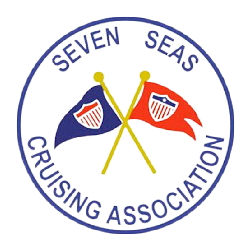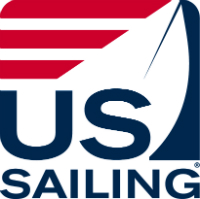It never fails during every lecture I deliver on fuel systems someone brings up the question about additives. The questions nearly always begin with, "I've read…" or "I heard from a friend who uses it that…" or "I saw an ad for a fuel additive that says it can…". The summation of the question often includes "…so how do I know what to use?", "…and can it really do that?" or "…and what happens if I don't use this because the dealer I spoke to said if I don't my engine will be damaged?" In hindsight, and after walking down the aisle at the local marine chandlery, I suppose I can understand the confusion.

The Science of Diesel Fuel Additives
The subject can be a contentious one; folks who use particular a product and believe it works are often fiercely defensive of this or that additive. What I rarely hear a user say, "I use this product and it has no affect what so ever, so I stopped using it". Instead, if the engine runs well then it must be because of the additive and if it doesn't run well it's chalked up to some other cause, real or perceived. I don't blame these folks, it's human nature to avoid broadcasting that something you've put your faith in hasn't lived up to all of its claims. There seems to be something wired into a boat owner's DNA that makes us feel good about seemingly improving something like fuel by adding an elixir whose contents are truly mysterious to us. In fact, I believe it's the mystery of what's in that bottle that creates some of the attraction. I suspect that if you did a double-blind study, offering a true fuel enhancement additive to some folks and a placebo to others, a sizeable percentage of the placebo users would report an improvement in performance, smoke reduction or fuel efficiency.
As I strolled around the Miami Boat Show earlier this year, I made it a point of counting the number of fuel additives I encountered. There were almost two dozen. There's a message here, but I'm still not quite sure what it is other than concluding I may be in the wrong business.
In most cases the product is being sold by a dealer, however, in a few rare cases the manufacturer is actually on hand, a decided advantage when I ask technical questions like, "does your product demulsify or emulsify water and if the latter what chemical is used for emulsification?" When I pose that question to the makers of three high quality products I happen to know very well, have studied and used, Valvtect, Stanadyne and StaBil, the answers I received were straightforward and accurate (I knew the answers, I was testing them). When I pose questions like this to some other additive vendors, the answers range from blank looks to what can only be described as junk science. The watch phrase is, go to the source for information. If you want to get to the heart of what a fuel additive does and what's in it, talk with the manufacturer, either in person or via email. I've had many email correspondences with the chemists at the aforementioned companies, and the answers I get are lengthy, detailed and accurate.
When considering the use of a fuel additive it makes sense to evaluate your usage, your needs and the reasons why you may opt to use a fuel additive, or not. I recently received a note from one of my clients that exhibits the need for such questions. "Steve, I'm considering using ABC brand fuel additive to deal with water and ethanol issues, a friend of mine has used it for some time and he's had no issues". My response included two thoughts, one, why do you believe water is an issue in your case, is it showing up in your primary fuel filter and two, ethanol is not present in diesel fuel (thankfully) so you don't need an additive to contend with its affects.
In short, don't use additives unless they are specifically needed. Among the most common reasons for using additives are water "removal" and biological remediation. If there's water in the tank you should, ideally, drain or suck it out rather than treat it chemically. If you remove the water, then you can't have biological growth. Treating the source rather than the symptom is always the preferred approach.
Additive Types
I previously emphasized the importance of understanding your additive needs before doping your fuel. There are a variety of products, some that encompass a variety of functions while others more narrowly target an issue. For marine diesels water in the fuel and fuel lubricity are the two most pressing concerns.
Water Contamination: Perhaps the most commonly discussed issue regarding diesel fuel is its most frequent contaminant, water. The presence of water in fuel can lead to a host of problems, from corrosion and reduced lubricity to formation of biological colonies and their fibrous and acidic byproducts. Clearly, water contamination is worthy of a vessel operators' highest attention. If you have some sort of biological growth in your fuel it's typically bacteria, not algae, the latter is a plant and requires sunlight to survive and there's not much of that in the stygian darkness of a fuel tank. Myth buster fuel factoid number 1; is most biological fuel contamination is bacteria, not algae. The solution is to get rid of the water, and the additive is a biocide, not an algaecide.
Additives that "deal" with water fall clearly into two categories, those that encourage its mixture with or suspension in fuel, whereby it is passed on to the engine and vaporized in the combustion process, and those that encourage its separation from fuel, where it can later be drained from a tank of filter. These are referred to as emulsifiers and demulsifiers respectively. There are variations on this theme regarding how and if emulsifier, dispersant or suspension additives will actually pick up free water from the tank bottom or simply suspend existing water in the fuel column. Some say they are "water neutral", meaning they will not cause water to drop from suspension (or prevent it from doing so) and they will not encourage emulsification of water on the tank bottom.
Consider as well that water that is in suspension, when trapped in fuel injection plumbing at rest, may fall out of suspension, where it can then accumulate and cause corrosion and lubrication problems. Some additive suppliers are careful to point out that their product will not, and are often specifically designed not to; remove free water from the tank bottom, an important distinction for the user who may believe he or she is remediating a water issue when in fact the product is only preventing water from falling out of suspension.
As previously mentioned, emulsifiers, dispersants and other similar constituents are designed to allow the water to either be caught by the water separator/filter (tough to do when it's thoroughly emulsified) and drained off or sent on to the injection system and combustion chamber. Water is a poor lubricant and it doesn't burn so the latter option is less than ideal for the injection system. Additive manufacturers point out that this is desirable when compared to water remaining in the tank, where it often leads to much more serious biological fouling and corrosion.
Depending upon the location of the tank's primary fuel pick up tube, in relation to the bottom of the tank (is it at the lowest location?) high quality conventional water separating fuel filters may be able to remove water that accumulates in tank bottoms, provided the engine is used regularly.

Lubricity: I walked through a major boat show shortly after the Ultra Low Sulfur Diesel (ULSD) monster began rearing its head and saw a sign at an engine dealer's booth that essentially said "unless you use this additive with ULSD fuel your engine will be damaged and your warranty will be voided". While the dire warning was an extreme exaggeration at best, in fact, in most cases if any engine or other manufacturer insists you use only their branded product in order to retain warranty coverage then they are obligated to provide it to you, for free. The law that governs, among other aspects, this protocol is called the Moss Magnusson Act and this part of it is referred to as the "tie-in sales provision".
What an engine manufacturer can legally do is require that you use fuel that meets a certain standard, such as ASTM D-975, which governs, among other things, a fuel's lubricity or slipperiness. Lubricity is important because of the fine tolerances of the components within the fuel injection system, some of which are measured in ten-thousandths of an inch. If the fuel's lubricity is too low, improper lubrication will be afforded fuel injectors and high-pressure pumps, which will lead to their untimely demise. They will essentially grind themselves to death. What's most insidious about this type of failure is there are typically no outward symptoms, the engine runs just fine, there's no smoke or knocking and fuel economy remains normal, until the engine becomes difficult to start or the injection pump fails, by which time the damage is done.
Lately, there's been a great deal of publicity about diesel fuel's lubricity, its slipperiness component. The reason the worry level has increased of late is related to the decrease in sulfur mandated for on-road diesel starting in 2007. At that point, most on-road diesel had to meet a 15 part per million standards (lowered from 500 ppm). Myth buster fuel factoid number 2, sulfur is not a lubricant. I cringe whenever I read or hear this from a self-styled expert or additive manufacturer. Rather, the process by which sulfur is removed from diesel fuel, using steam and called hydro-treating, collaterally removes some of fuel's lubricity as well. Rest assured, however, engineers who spec fuel quality and operate refineries are well aware of this issue and they have in place protocols to deal with the decreased lubricity; they simply add lubricity agents at the fuel "rack", where fuel is dispensed. Herein lies the problem, mistakes can happen when it comes time to add these agents. Typically, lubricity is not monitored in real time at the fuel terminal, and things can occasionally go wrong.
In my experience, lubricity-related failures are rare indeed. However, if a boat owner wants to take the proverbial belt and suspenders approach, he or she can add a synthetic, non-acid type lubricity improver. This type of lubricity improver is preferred because it is resistant to interactions with both contaminants and other additives, which may cause filters to clog prematurely.
Buyer/User Beware
Before considering any additive, your very first step should involve consulting the engine and generator manufacturer's guidelines, recommendations and requirements regarding an additive you may be contemplating. Different engine manufacturers necessarily have different takes on what they recommend. Caterpillar, for instance, in their diesel fuel guideline, generally discourages the use of additives however they go on to say that cetane improvers and biocides may be used where necessary (if the cetane is lower than 40 or if biological growth is an issue).
Some engine manufacturers clearly point out that the owner/operator is responsible for verifying that the fuel meets the requirements for lubricity, sulfur content, cetane and cleanliness (how do you do that other than having it analyzed?). They go on to say that if the owner/operator is using fuel of low or unknown lubricity, then a fuel conditioner should be used, usually their own. John Deere's take on additives, when asked if they are needed, is a bit different, "The need to use a diesel fuel conditioner is now more important than ever. Diesel fuel quality can vary dramatically from source to source and even day to day. Inconsistent fuel quality can result in customer dissatisfaction over equipment life and performance..."
As you can see, the path is anything but clear, however, most engine manufacturers are in the business of ensuring their engines work well and last a long time, so it's in their best interest in guiding you appropriately on the subject of additives.
Thus, provided the product is approved, or at least not barred, by your engine manufacturer diesel additives are useful. For water contamination (most engine manufacturers prohibit the use of emulsifiers/dispersants or other products that rely on alcohol to encourage water to remain in suspension), use of an emulsifier/dispersant/solubilizer may prove to be the best option to deal with water and algae in the tank. Removing water from the fuel may be the best thing you can do to improve lubricity, but most engine manufacturers support the use of a lubricity agent.
Steve D'Antonio is a marine systems consultant offering services to boat buyers, owners and the marine industry, as well as an author and photographer. He is an ABYC-Certified Master Technician. Read more from Steve at www.stevedmarine.com.












